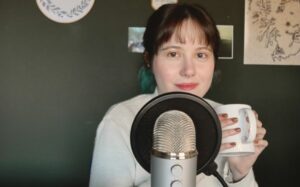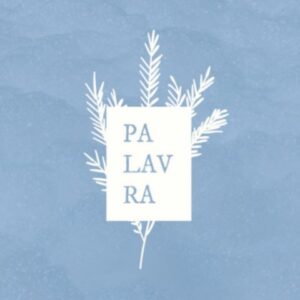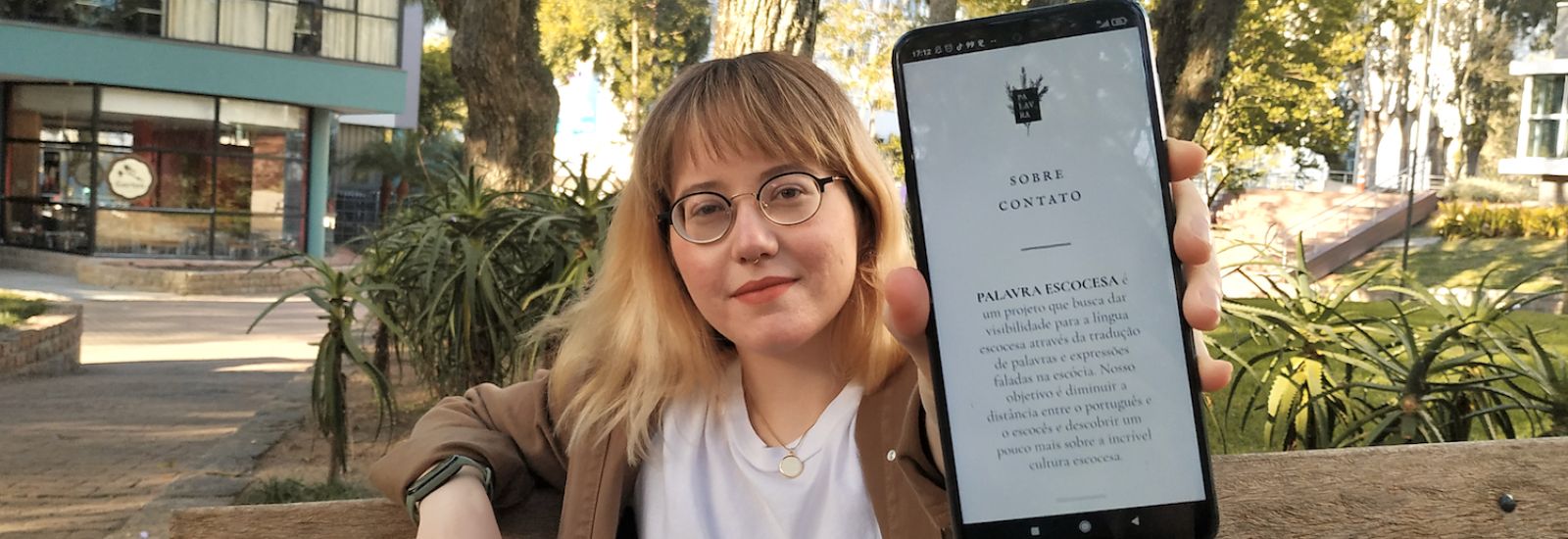British Council Study UK Alumni Award 2024 winner, Nichola Giovanella Vivian, spoke to CONNECTED to share how they created a multicultural community of people while preserving the endangered Scots language.
 Nichola, a software engineer from Brazil, who received a one-year scholarship to study on the BSc in Information Technology at the University of Reading, is the 2024 winner of the British Council Study UK Alumni Award for Culture and Creativity in Brazil. This category recognises alumni who have carved a career for themselves in arts and culture, and who can demonstrate their artistic ingenuity, influence and creativity.
Nichola, a software engineer from Brazil, who received a one-year scholarship to study on the BSc in Information Technology at the University of Reading, is the 2024 winner of the British Council Study UK Alumni Award for Culture and Creativity in Brazil. This category recognises alumni who have carved a career for themselves in arts and culture, and who can demonstrate their artistic ingenuity, influence and creativity.
Nichola won this award as a result of their Palavra Escocesa (“Scots Word”) project, which aims to expand people’s knowledge about the Scots language, Scotland and Celtic culture, and to reduce the distance between Portuguese and Scots. The project has become a multicultural community for those interested in Scotland, creating an inclusive space for people to join together and learn from each other.
Watch our video to hear from Vice-Chancellor, Professor Robert Van de Noort, on Nichola’s achievement:
Read on to find out more about Palavra Escocesa and how Nichola’s time studying at Reading inspired them.
Palavra Escocesa
When Nichola arrived in the UK they immediately took advantage of the opportunity to explore and learn more about its history and culture, including an inspirational trip to Scotland.
Nichola said: “I have always been interested in learning about difficult cultures and the UK has a vast documented history. Even after I came back to Brazil, I thought about how I wanted to visit it again and learn more about its diverse culture. I loved Scotland, but I didn’t realise they spoke a different language until I saw a project by the Scottish poet, Len Pennie, called ‘Scots Word of the Day’. It was through Len’s project that I got to know more about Scotland and its history and the endangered Scots language.
“While talking to my friends in Brazil I also realised that many people do not know much about Scottish history, culture or its language. Unfortunately, most of the content about Scotland is written in English or Scots, and only 5% of Brazilians speak English, meaning it is not accessible to them.
“Brazil and the UK may be separated by an ocean, but I firmly believe that we can still find ways to connect and be part of each other’s culture.”
So, in 2021 Nichola set about translating articles about Scotland from English to Portuguese and Palavra Escocesa was born, enabling Portuguese speakers to connect with Scotland. However, they were also pleasantly surprised by the number of Scottish people who wanted to get involved too.
Nichola explained: “I created this project to share my knowledge and to talk about Scottish traditional music, Scottish history, heritage, the Scots language and Scotland in general.
“I hope that the more I can share and the more people learn, then we might be able to preserve the Scots language and heritage.
“Twice a week I post a word in Scots and its meaning in Portuguese on Twitter, Instagram and TikTok. I also make content about Scottish music, geography, folklore, politics and more.”
 With the success of Palavra Escocesa, Nichola’s work continued. They said: “Later in 2021, I was invited to become the first South American ambassador for the dotScot domain. Then in 2022, I was nominated for the Scots Language Awards for Scots Project of the Year. I also started a podcast, where I talk about historical and theoretical aspects of the language.
With the success of Palavra Escocesa, Nichola’s work continued. They said: “Later in 2021, I was invited to become the first South American ambassador for the dotScot domain. Then in 2022, I was nominated for the Scots Language Awards for Scots Project of the Year. I also started a podcast, where I talk about historical and theoretical aspects of the language.
“While working on these projects I have had the chance to meet Brazilian bagpipers, Highland dancers, linguists, Scottish people living in Brazil, Brazilians and Portuguese speakers living in Scotland, and Scottish people who are friends with Portuguese speakers. But, most importantly, I have had the chance to inspire people to do the same with other endangered languages.
“Scots is an endangered minority language, which deserves all the attention it can get. However, there are many other languages in the same situation, for example Scottish Gaelic. I had the pleasure of meeting a group of Brazilians who speak Scottish Gaelic and told me they want to do a similar project which would be amazing to see.”
Inspired by the UK
Nichola shared that if they had not studied in the UK, then Palavra Escocesa would never have existed. They explained:
“In 2014, I got a Science Without Borders Scholarship to study at the University of Reading. Without this scholarship I would not have been able to study in the UK. Without studying in the UK – and the exposure this gave me to its history and culture – this project would never have existed.
“It was inspiring to study at Reading – this is a university which cares about its exchange students. Being here gave me a wonderful opportunity to meet people from many different backgrounds and make friends for life. I also got to try new experiences, including archery, kayaking and exploring the University’s on-campus museums. Here, I had the chance to learn more about the local history, England’s rural life and art, as well as visiting Wales, Northern Ireland and Scotland.
“What really struck me about the UK is how its history is present in everyday life, which was a key inspiration behind Palavra Escocesa.
“I’m very thankful I got this opportunity to meet so many people from different cultures when I was studying in England, and how this has led to me winning this Study UK award. Winning this award means a lot to me and it’s a sign that this project is on the right track. Now, I feel more determined to keep working on Palavra Escocesa and to expand it.”
To hear more of our British Council Study UK Alumni successes, read Sushan’s story.




